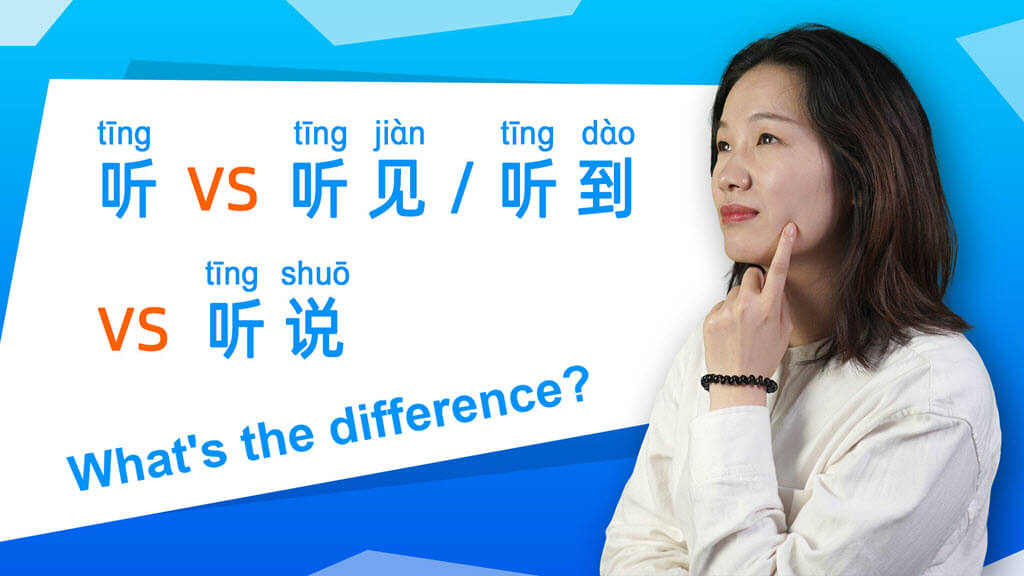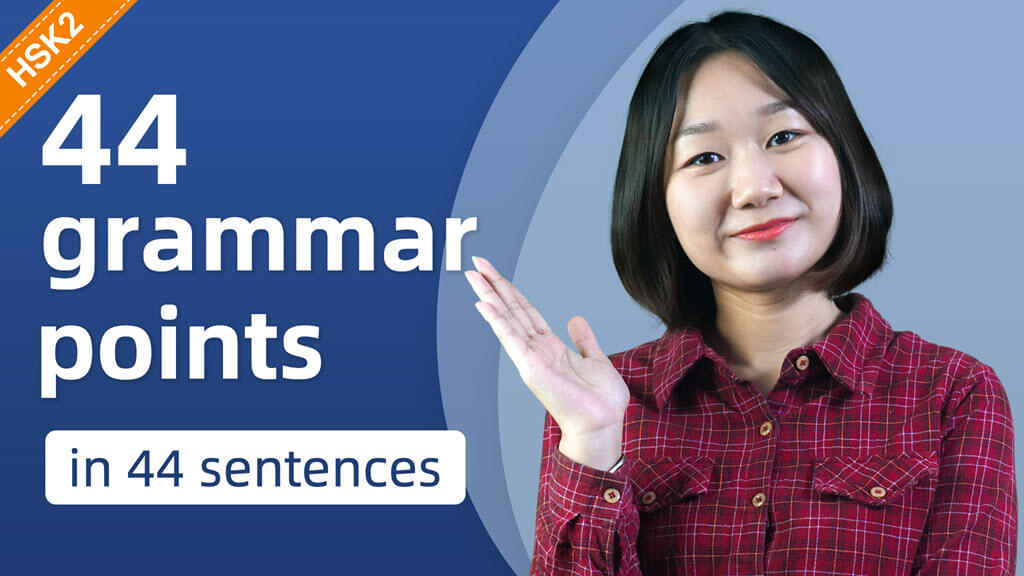How do you say yes in Chinese? If you’ve just started learning Chinese, the simple 是的(shì de) or 对(duì) are probably your initial options. After you have been communicating with Chinese people or watching videos or movies in Chinese, you may realize that there are various ways to convey ‘yes’ in Mandarin Chinese for different situations. In this post, we list 9 methods for expressing agreement or approval in real-life Chinese and teach you useful ways to say yes in Chinese like a native speaker.
A basic word to say yes in Chinese: 是 (的) - shì (de)
Let’s start with the word 是 (shì) which you are likely to know about. If there is the verb 是 (shì) in a yes-no question, its positive answer should be 是 (shì) or 是的 (shì de). For example:
A: 请问,你是王女士吗?
Excuse me, are you Ms. Wang?
B: 是的。
Yes.
A: 这个东西是你的吗?
Is this thing yours?
B: 是的。
Yes.
The most basic way to say yes in Mandarin: repeat the key Verbs
In a simple question, just use the key verbs to answer, like verbs of thought or feeling, modal verbs, etc. Now let’s look at some examples.
A: 你喜欢狗吗?
Do you like dogs?
B: 喜欢!
Yes, I do!
A: 你有孩子吗?
B: 有,我有三个孩子。
Yes, I have three children.
A: 你会游泳吗?
Can you swim?
B: 会。你呢?
Yes, I can. How about you?
A: 你明天去学校吗?
Will you go to school tomorrow?
B: 去。
Yes, I will.
When someone asksfor permission or help, you want say yes : 可以 (kěyǐ) / 当然 (dāngrán) / 没问题 (méi wèntí)
If someone asks you for permission or help, you can answer with positive words, such as 可以 (kěyǐ) , 当然 (dāngrán), and 没问题 (méi wèntí). 可以 (kěyǐ) means yes; 当然 (dāngrán) means of course; 没问题 (méi wèntí) means no problem. 当然 (dāngrán) and 没问题 (méi wèntí) sound more certain than 可以 (kěyǐ) . 没问题 (méi wèntí) is often used when people ask for help.
Ask for permission:
A: 我可以看电视吗?
Can I watch TV?
B: 可以。
Yes, you can.
A: 我可以用一下你的笔吗?
Can I use your pen?
B: 当然。你用吧。
Of course. Here you go.
Ask for help:
A: 丽丽,你可以给我讲一下这道题吗?
Lily, can you help me with this question?
B: 可以啊,你哪里不明白?
Yes. What are you confused about?
A: 你能帮我买一杯咖啡吗?
B: 没问题。
No problem.
Using 好(hǎo) to express yes in Chinese
好(hǎo) is a positive answer. It can be followed with some modal particles, such as 好啊 (hǎo a), 好的 (hǎo de), 好吧(hǎo ba). But there are subtle differences between them:
If someone is asking for your opinion, the positive answer can be 好 (hǎo) or 好的(hǎo a), and 好啊 (hǎo a) makes the tone more soft and light.
A: 我们中午吃披萨怎么样?
How about pizza for lunch?
B: 好啊!
Great!
If someone is giving an order or a request, the positive answer normally is 好 (hǎo) or 好的(hǎo de). And 好的 (hǎo de) sounds more formal.
A: 丽丽,明天开会的时候你做报告。
Lily, please present a report at the meeting tomorrow.
B: 好的。
Okay.
If what someone says didn’t meet your expectation, but you have to accept, in this case, you should use 好吧 (hǎo ba) to say yes and to show your disappointment.
A: 今天我不去游泳了,我有点儿不舒服。
B: 好吧,那你回去好好休息吧。
Okay, just go back and rest up.
Using 行 (xíng) to say yes in spoken Chinese
行 (xíng) is also a positive answer in spoken Chinese. If you’re willing to do something, then you can answer by adding the modal particle 啊(ā) at the end, that is 行啊(xíng a).
A: 没有飞机票了,我们坐火车去行吗?
The plane tickets are sold out. Can we go by train?
B: 行啊。
No problem.
A: 你看,这样行不行?
B: 行。
No problem.
When you agree with someone’s opinion: 对(duì) / 没错(méi cuò)
对(duì) means that’s right; 没错 (méi cuò) means exactly. When you agree with someone’s opinion or show your support, you can use 对(duì) or 没错 (méi cuò) to say yes. For example:
A: 你是不是很喜欢吃巧克力?
You really like chocolates, don't you?
B: 对!
Yes!
A: 我觉得大卫这次还会是第一名。
I think David will still be number one this time.
B: 没错,我也这么觉得。
Yes, I think so too.
Using 嗯(ǹg) to express yes in daily life
嗯 (ǹg) means um, yeah, right. Sometimes, 嗯 (ǹg) can be also used as a positive answer in everyday life. The Chinese people use 嗯 (ǹg) or 嗯嗯(ǹg ǹg) especially when talking to their relatives and friends on the phone. In addition, it can be followed by a sentence or a word. For example:
A: 丽丽,你写完报告了吗?
Lily, did you finish your report?
B: 嗯,写完了。
A: 咱们是明天上午十点的飞机吧?
Our flight is 10 o'clock tomorrow morning, right?
B: 嗯。
Yeah.
我没意见/ 听你的 - I agree with you. / It’s up to you.
When discussing with other people, if you agree with someone's opinion, then you can use 我没意见(wǒ méi yì jiàn) or 听你的(tīng nǐ de) to give a positive answer. For example:
A: 我们每个人轮流照顾父母一个月,怎么样?
Each of us takes turns to take care of our parents every month. Do you agree?
B: 我没意见。
I agree.
A: 我们先去爬山,然后去吃午饭,晚上去逛街,怎么样?
Let's go hiking first, then have lunch, and go shopping at night. What do you think?
B: 听你的,我没意见。
Sounds good.
Repeat word many times to say yes with emotion
Sometime, the native speakers also repeat a word three time to express yes and show their emotion as well. Like 行行行 (xíng xíng xíng), it means someone is annoyed by something.
A: 哎呀,你得先倒油,然后放土豆,最后放鸡肉……
You have to pour oil first, then put potatoes, and put chicken at last...
B: 行行行,我知道了,你去看电视吧!
Ok ok, got it. Just watch TV!
One more example, 好好好 (hǎo hǎo hǎo) also means someone is annoyed by something.
A: 衣服要放在柜子里,书要放在书架上,水果要放在冰箱里。
You should put your clothes in the cupboard, books on the shelf, fruits in the refrigerator.
B: 好好好,我知道了,你快去忙你的吧。
Ok ok, got it. Just do your things!
Note that if you pronounce the last word longer, 好好好 (hǎo hǎo hǎo), it shows the old spoil the children.
A: 奶奶,我要吃糖。
Grandma, I want candies.
B: 好好好,乖孙女,奶奶给你买。
Sweetie, I’ll buy it for you.
The last one, 对对对 (duì duì duì) shows a highly agree.
A: 你说的是《花木兰》吗?
Are you referring to the movie Mulan?
B: 对对对,就是那个电影。
Exactly. Just that movie.
The End
Now, do you know how to say yes properly and fluently in Chinese? If you know other ways to use yes in Chinese or want to share your own ‘yes’ expressions with us, you can tell us in the comments section below. Thanks!
You can also download the MP3 and PDF of this Chinese lesson for on-the-go learning. Don't forget to take the quiz to solidify your knowledge.





Comments